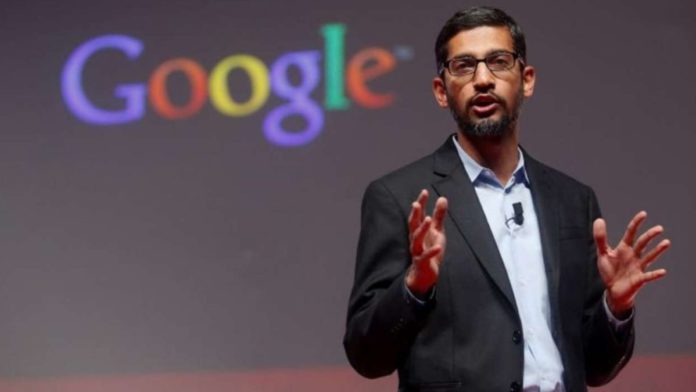The management of Google apparently issued a “code red” during December 2022 to deal with OpenAI’s ChatGPT, an AI-powered chatbot that gained popularity for its capacity to directly answer queries in a conversation, which posed a threat to Google. Now, GPT-4, the most recent in OpenAI’s line of AI language models that power programs like ChatGPT and the new Bing, has been officially released after months of speculation and debate. Recently, Microsoft announced a new version of the search engine Bing, powered by an updated version of the AI technology powering chatbot ChatGPT. While many leading companies are making strides in the AI field, many are wondering whether Google has lost the AI race with these tech giants. Let’s explore.
Google’s AI Initiative
Sundar Pichai, the CEO of Google, has been involved in a number of meetings to determine Google’s AI strategy. In an effort to counter the threat that chatGPT poses, Pichai has since altered several operations of numerous groups within the company. By May 2023, teams from Google research, trust and safety, and other divisions will have developed and released new AI prototypes and products, according to the CEO. Pichai has given its employees the responsibility of developing new AI products that, like OpenAI’s DALL-E technology, can produce artwork and photos.
Companies such as Google, OpenAI, and Microsoft are at the forefront of the AI field, and each is vying to become the leader in AI research and development. While all three companies have made significant strides in the field of AI, Google has not lost the AI race to its competitors. In fact, the recent announcement concerning its own AI chatbot, Brad, generative AI features in Google Workspace, and many more are proof of its progress. Let’s take a look at some of Google’s significant AI developments.
Read More: Microsoft unveils AI office copilot for Microsoft 365
MusicLM
In January, Google unveiled a new AI system called “MusicLM” that can create high-fidelity music in any genre just with a text description, according to a research paper. MusicLM was trained on a dataset of about 280000 hours of music to learn to generate coherent songs based on descriptions of significant complexity. Its capabilities extend beyond creating short clips of songs. Google researchers showed that the system could build on existing melodies, whether played on an instrument, hummed, sung, or whistled.
Bard
In February, Google introduced Bard, an experimental conversational AI service powered by LaMDA, and opened it up to trusted testers ahead of making it more widely available to the public. Google’s chatbot is powered by Transformer, a neural network architecture, and LaMDA, Google’s language model. Google claims that Bard uses web resources to provide insightful, up-to-date responses. In light of OpenAI’s ChatGPT’s success and the hype around Microsoft’s Bing, a lot is being expected out of Brad.
“Now, our newest AI technologies — like LaMDA, PaLM, Imagen and MusicLM — are building on this, creating entirely new ways to engage with information, from language and images to video and audio. We’re working to bring these latest AI advancements into our products, starting with Search,” said Pichai in a blog.
Generative AI capabilities in Google Cloud
Developers can access Google’s AI models, notably PaLM, on Google Cloud to create and modify their own models and applications using generative AI. In order to give developers and businesses access to enterprise-level safety, security, and privacy while also allowing for seamless integration with their current Cloud solutions, Google has added new generative AI capabilities to the Google Cloud AI portfolio.
Apart from allowing users to build and deploy AI applications and machine learning models at scale, Google Cloud’s Vertex AI platform now provides foundation models, initially for creating text and images, and over time with video and audio using generative AI. Google also introduced Generative AI App Builder. It connects conversational AI flows with out of the box search experiences and foundation models, thus empowering companies to build generative AI applications in minutes or hours.
PaLM API & MakerSuite
Google released the PaLM API, an accessible and secure approach for developers to build on top of its best language models, for those who are exploring with AI. On Tuesday, Google made a size and capability-wise effective model available; further sizes will be added soon. Additionally, the API includes the user-friendly MakerSuite tool, which enables users to swiftly prototype concepts. It will eventually offer capabilities for prompt engineering, creating synthetic data, and tuning specific models, all of which will be supported by strong safety tools.
“In addition to announcing new Google Cloud AI products, we’re also committed to being the most open cloud provider. We’re expanding our AI ecosystem and specialized programs for technology partners, AI-focused software providers and startups,” Thomas Kurien, CEO of Google Cloud said.
Generative AI features in Workspace
Google announced a number of generative AI features for its various workspace apps, such as Google Docs, Gmail, Sheets, and Slides. The features include new ways for Google Docs’ AI to brainstorm, summarize, and generate text; the ability for Gmail to create complete emails from users’ brief bullet points; and for Google Slides to create AI imagery, audio, and video to illustrate presentations. The AI features will enable one to go from raw data to insights and analysis through auto-completion, formula generation, and contextual categorization in Sheets. Users can also generate new backgrounds and capture notes in Meet, while enabling workflows for getting things done in Chat.
Conclusion
While OpenAI and Microsoft are certainly formidable competitors in the AI space, Google has not lost the AI race. The company’s significant investment in AI, access to vast amounts of data, track record of innovation, and commitment to accessibility demonstrate that it is still at the forefront of this exciting field. With the latest release of its new AI tools for Google Workspace, Google is continuing to push the boundaries of what is possible with AI and demonstrating its commitment to making AI more accessible to a wider audience.


